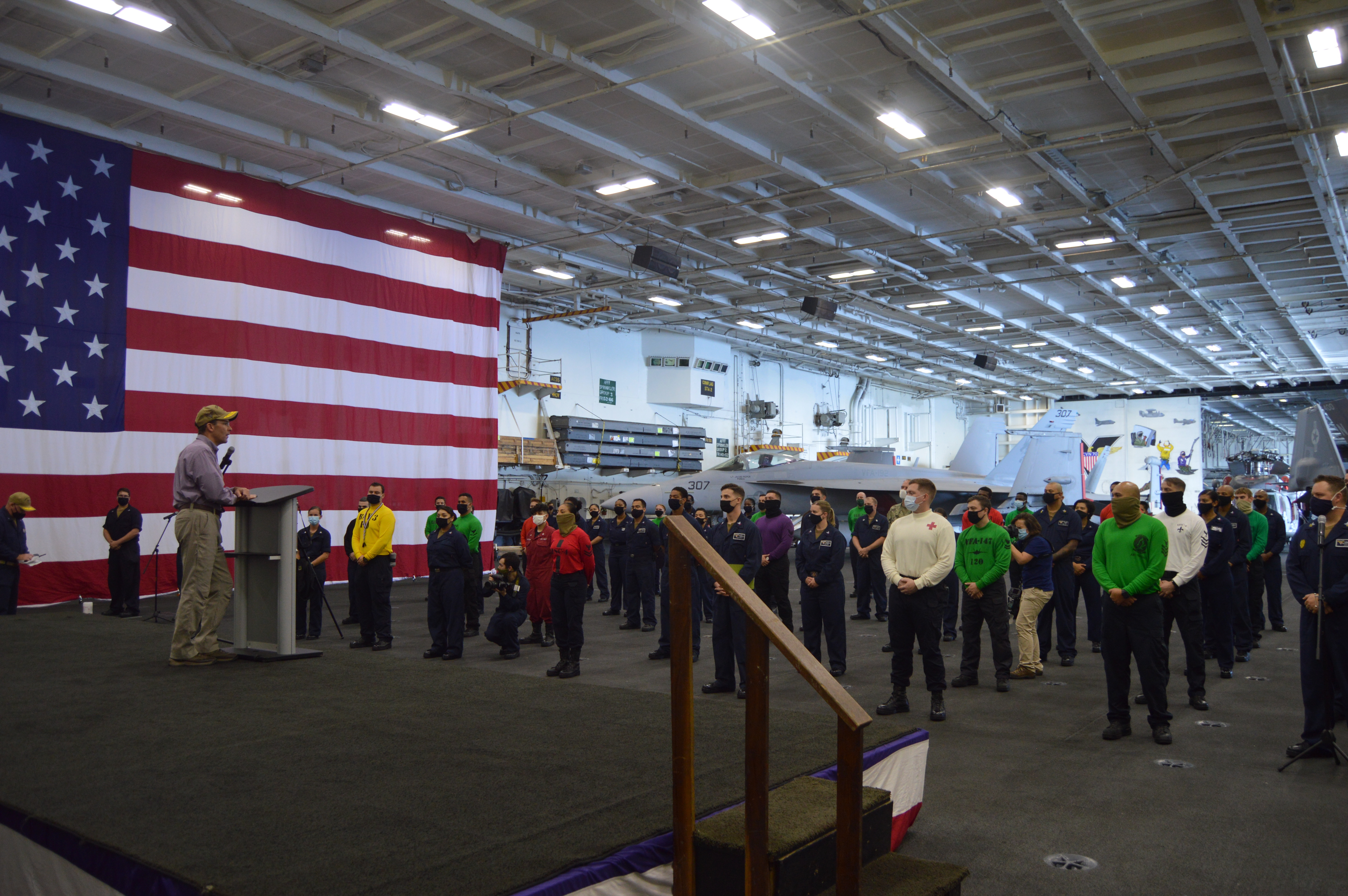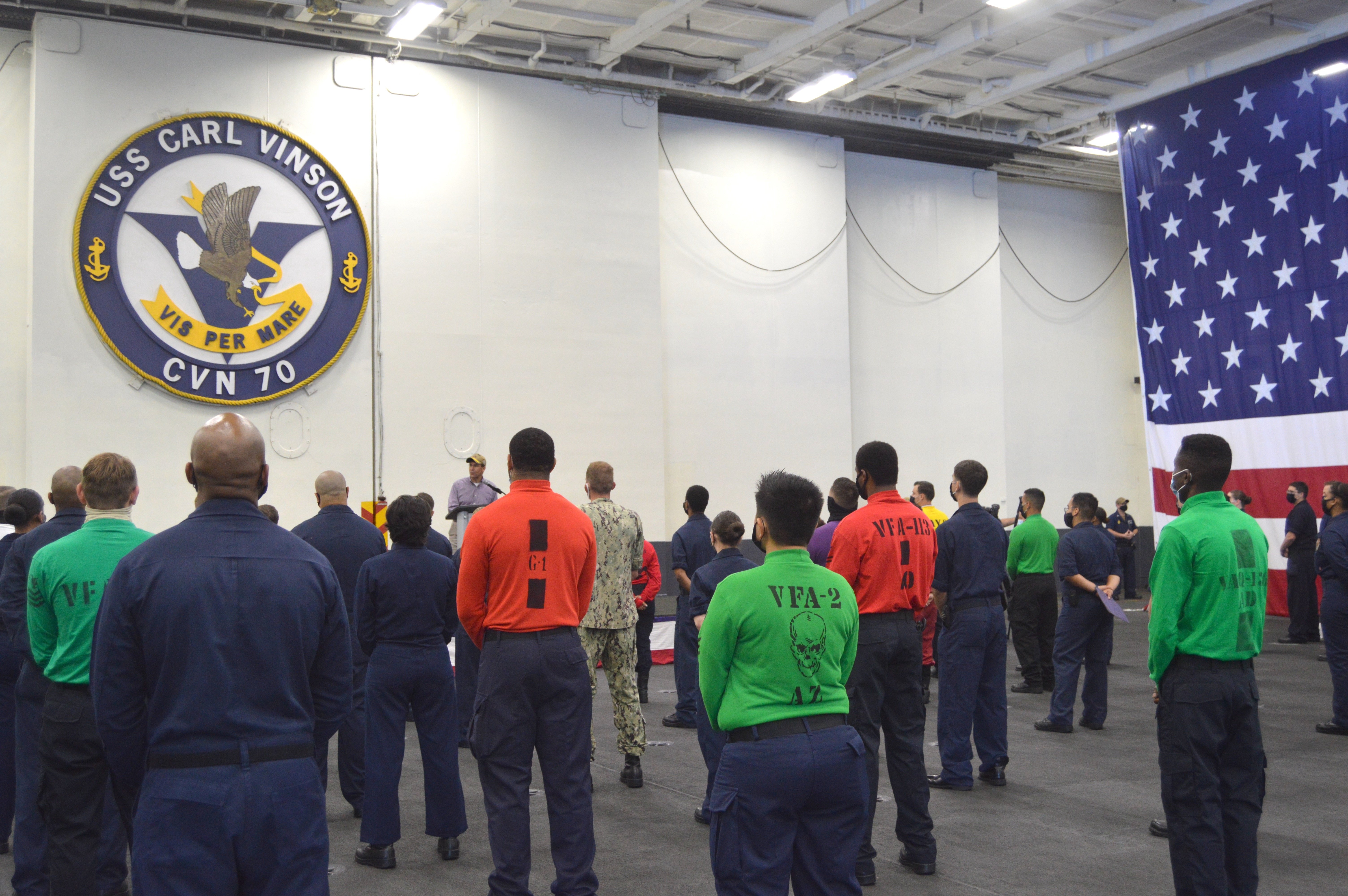
ABOARD AIRCRAFT CARRIER USS CARL VINSON, OFF THE COAST OF CALIFORNIA – Defense Secretary Mark Esper told sailors today that heavy investment in unmanned systems would be key to the Navy reaching 355 or more ships and having the lethality and survivability needed if a conflict were to break out with China.
Esper is traveling to California this week, where he is largely focused on Navy and Marine Corps readiness and modernization and industry investments in areas like unmanned systems and artificial intelligence.
Speaking aboard USS Carl Vinson (CVN-70) on Thursday morning, he told a few dozen sailors that “we’re investing a lot in unmanned vehicles, whether they are unmanned aircraft – and I see a vision of the future where every type of plane function that you see today on the deck would be, could be unmanned, should be unmanned. We need to have those capabilities.”
He added that he had seen Boeing’s Echo Voyager prototype for the Extra Large Unmanned Underwater Vehicle on Wednesday and would tour DARPA’s Sea Hunter medium unmanned surface vehicle later on Thursday.
“Unmanned will enable us to grow the United States Navy well beyond 355 ships. It will add more lethality, survivability, capability, et cetera, to the United States Navy and indeed to the joint force,” he said during a question and answer session with the sailors.
“So, we’re making all those investments; the research and development budget that we had [this fiscal year] is the largest in history. We’re very excited about that. We have to invest in the future.”

Esper said in response to three questions that were largely focused on Chinese investments in technology and the threats they posed to carrier strike groups and other forces operating in the Indo-Pacific that “we need to outcompete” China even though its economy is set up to make significant investments in 5G, AI, unmanned systems, hypersonic weapons and more. He added that Congress needed to be a partner in this.
“What I’m always looking for is predictable, timely, adequate budgets and the freedom to divest and reform and free up money to put into these things. There is no doubt in my mind that we will not just out-compete China and other strategic competitors, but we will retain our overmatch for years and years to come.”
The secretary made a point of noting that, though unmanned systems would play a big role in the future of the Navy, people were still important, too. He said the Navy needed to ensure it was investing in its people, their training and their families so they could be ready to deter or fight China.
Though China is increasing the size of its fleet rapidly, Esper said that the number of ships and aircraft didn’t matter as much as the training and skillset of those who operate them, the tactics and the concepts that guide how they’re employed, and the integration of the joint force operating.
“When I hear from the combatant commanders, they want to know, where are the aircraft carriers? How ready, where will they be, when will they be, what are they packing?” Esper said.
“That’s why it’s really a great privilege for me to come out and spend time with you all today and talk with you to understand how you work, how you function, how you ramp up, maintenance, how you get in on time and out on time. These are things I think a great deal about, because it is a strategic, operational and tactical advantage that we have the aircraft carrier force that we do. So each and every one of you are part of that to ensure that we have that operational availability and readiness that’s critical in deterring our adversaries and, of course, if necessary, fight and win.”





